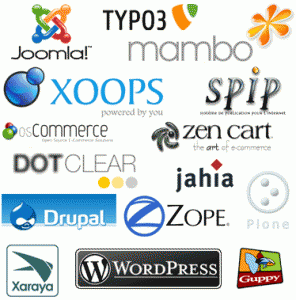Open Source, a revolutionizing word that raise on demand with the advent of Internet. This term has its relevance in relation to web production and web development, where it stands as a pragmatic methodology. For layman understanding, open source is simply the free sharing of information. Technically, open source means to make the source codes of certain product open to the public, which enhances transparency, liberty and user participation. Owing to such benefiting aspects, today, Open source has made its irreplaceable entry into different fields such as Computer software, Web Development, Digital content, Media, Electronics , Beverages, Health and science, Robotics, Government Sector and others.

Web Development Sector is perhaps the most touched spheres, where open source has boomed massively. For any business entity, small or large enterprise, government department, having an online presence is no more a question of choice but a compulsory requirement. Hence, there will be hardly any who is not in need of web development services, and open source has supported web development by making it less expensive and more upgraded. Open Source stands out as a cost effective solution, which will allow one to design and develop the desired website at free or minimal start up cost.
Open source has made the source codes of those software and applications open, which are intensely required in web development. In today’s e-market, plenty of open source software and applications are available, which caters to the various aspects of web development. Web Content Management System (Web CMS) is one such open source web development software, which is required for the creation, management, storage and deployment of content on Web pages. Open source has made adoption and maintenance of Web CMS, an easy and cost effective affair. There is a wide range of free open source software that can be installed in a web browser to develop a web CMS. A few of such software are OpenCms, DSpace, Bricolage, TWiki, Frog CMS, Geeklog, Habari, ImpressCMS, Joomla; like this there are around 135 software. Open source supported Web CMS have various advantages: the major being it’s cost less, and the other advantages are legal ownership of the code; flexibility, in the sense that any user who have the basic HTML and app development knowledge can handle the CMS; Audit Ability, where the owner can cross check the security issues with other developers.
